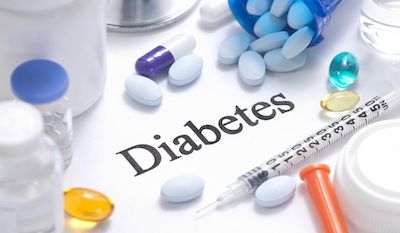Organ Donors with Type 1 Diabetes Show High Rates of Illicit Drug Abuse
Patients with T1D should be screened for depression and diabetes-related distress.

Patients with type 1 diabetes (T1D) should be screened for depression and diabetes-related distress, researchers say after analyzing the terminal hospital records of 100 organ donors with the disease.
The Network for Pancreatic Organ Donors with Diabetes (nPOD) collects tissue so that scientists can learn more about the immunological, metabolic, and physiological causes of the disorder. In the study, the researchers, led by Laura Jacobsen, MD, of the Department of Pediatrics at the University of Florida in Gainesville, considered “the cause, circumstance, and mechanism of death; laboratory results; and history of illicit drug use” from the terminal hospital records of the first 100 patients who were organ donors listed in the nPOD database.
Of these records, 45% were female, and 79% were Caucasian. The mean duration of disease was 16 years at the time of death, and the mean age of the deceased was 28 years. Anoxia was the leading cause of death in 57 patients.
The researchers observed that the cases of anoxia were “precipitated by a variety of events including drug overdose, myocardial infarction, pulmonary embolism, or cerebral edema.” In 15 of the deaths due to anoxia, there was also a history of illicit substance use. Patients who were younger and had a shorter disease duration were more likely to have acidosis at admission.
Cerebrovascular failure (17), trauma (17), renal disease (1), and suicide (8) were also listed as causes of death. There were positive tests for illicit drugs (excluding marijuana) in 32 of the 100 cases.
Three of the organ donors were under the age of 18 and committed suicide through an insulin overdose or a self-inflicted gunshot wound. A total of 8% of the records indicated a documented suicide. The average age of organ donors who committed suicide was 21 years, and the average duration of their diabetes was 9 years. A similar rate of death by suicide is recorded in a T1D registry in the United Kingdom, where 6% of deaths are due to suicide. The University of Florida researchers noted that in the United States in 2014, suicide was the 10th leading cause of death in people of all ages and the 2nd leading cause of death in people aged 10 to 34 years.
The organ donors who tested positive for illicit drugs were often found to be using multiple drugs, although cocaine was most common substance found. Alcohol and marijuana were also identified, with 35% testing positive for alcohol and 27% for marijuana. The researchers note that in the UK registry, 16% of deaths are due to drug use, as compared to the 32% in this study.
An analysis involving only organ donors involves what the authors describe as “implicit biases” and say the results “may not be directly comparable to the general population.” However, they also emphasized that the high rates of drug use and suicide they found are alarming, and indicate a need for more attention to the psychological and emotional care of patients with T1D.
“The burden of type 1 diabetes extends far beyond checking blood glucose and administering insulin,” the researchers wrote in their conclusion. Although the American Diabetes Association guidelines for 2017 include screening for depression and diabetes-related distress, those caring for patients with T1D should be aware of any signs of depression, drug use, difficulty coping, or other indicators that may require mental health professionals with type 1 diabetes-specific training.
The full study can be found in the journal Diabetes Care.
Related Coverage:
Single Dose of Glucagon Receptor Antibody Found to be as Effective in Reducing Insulin Need
Transitioning Teens from Pediatric Health Systems: Pediatric Endocrinologists Talk Diabetes
Basaglar Receives Tentative FDA Approval for Diabetes Treatment